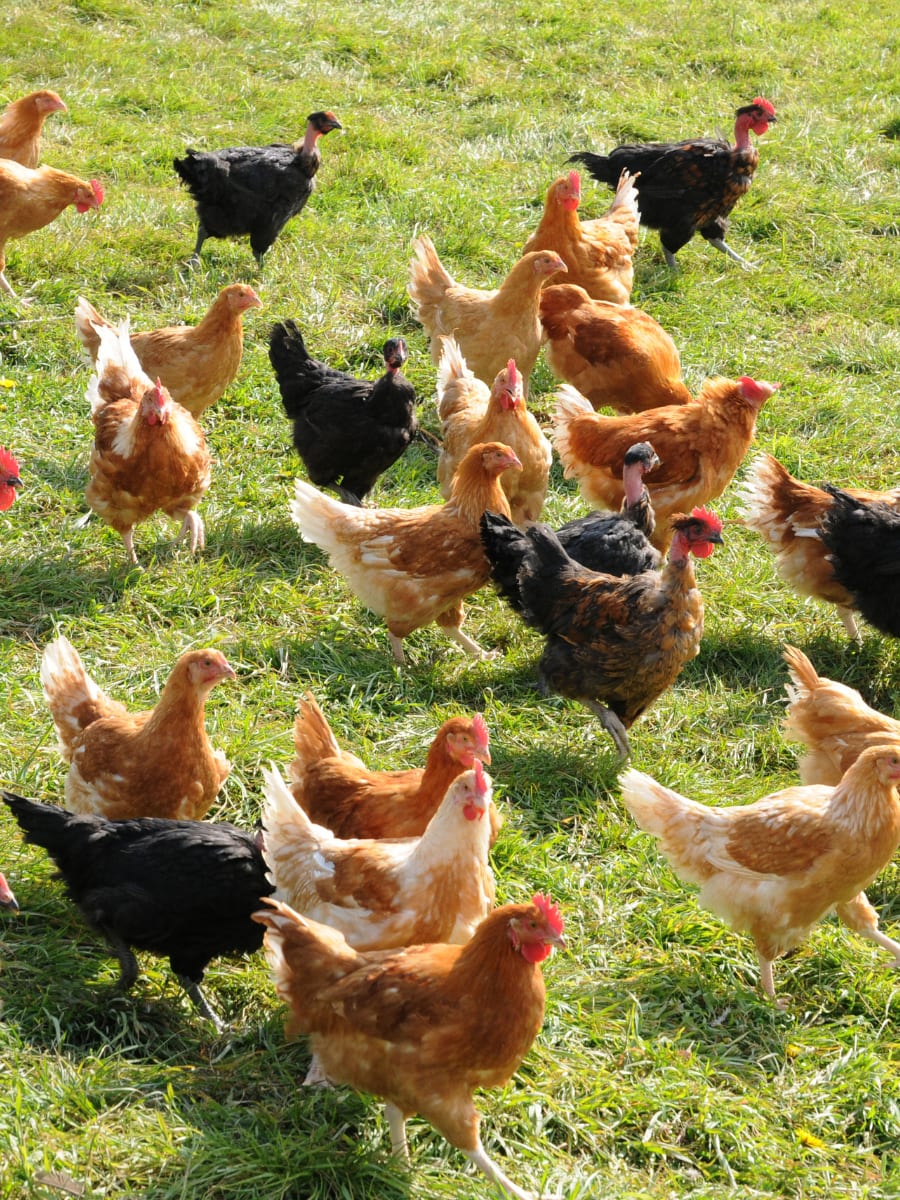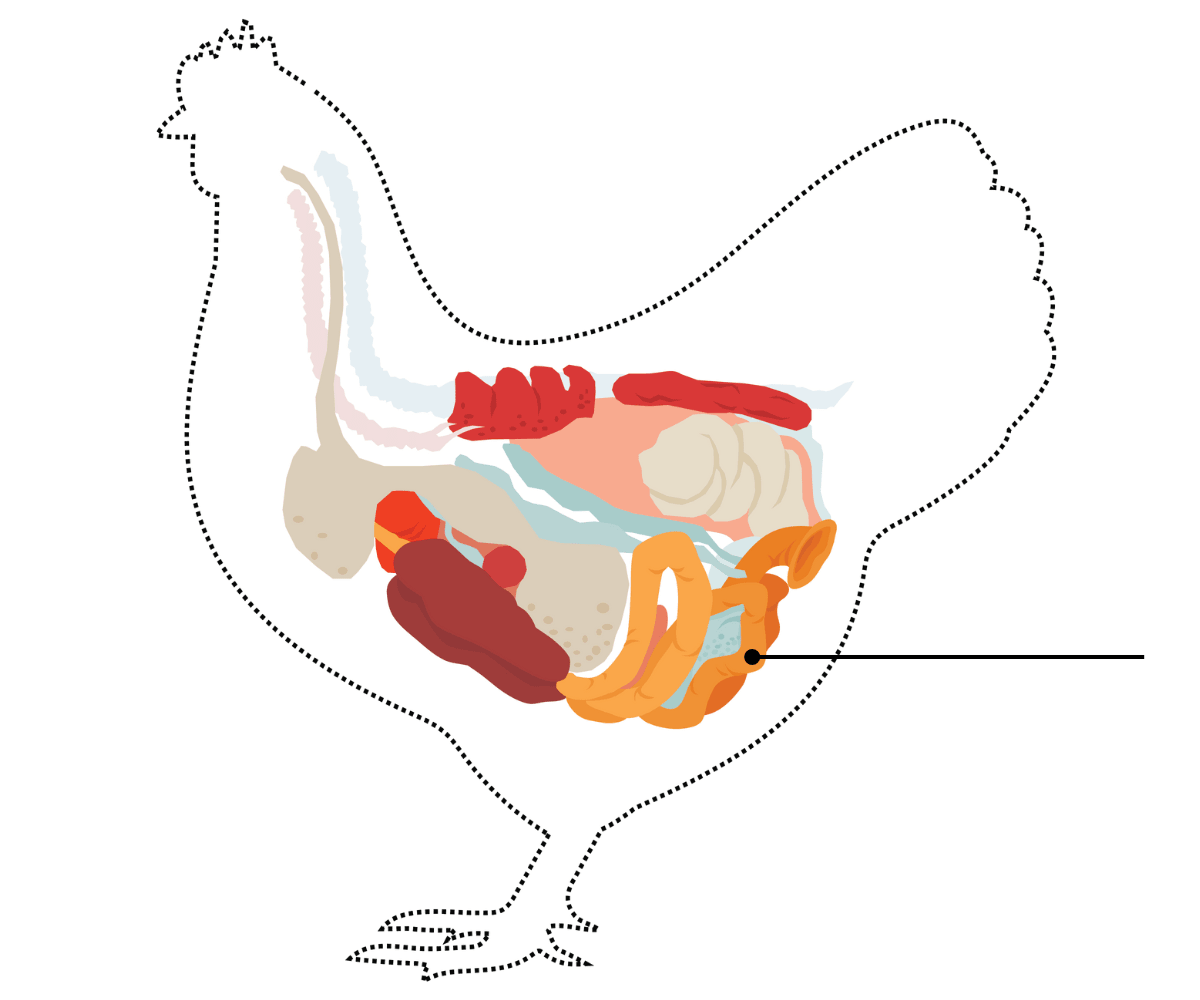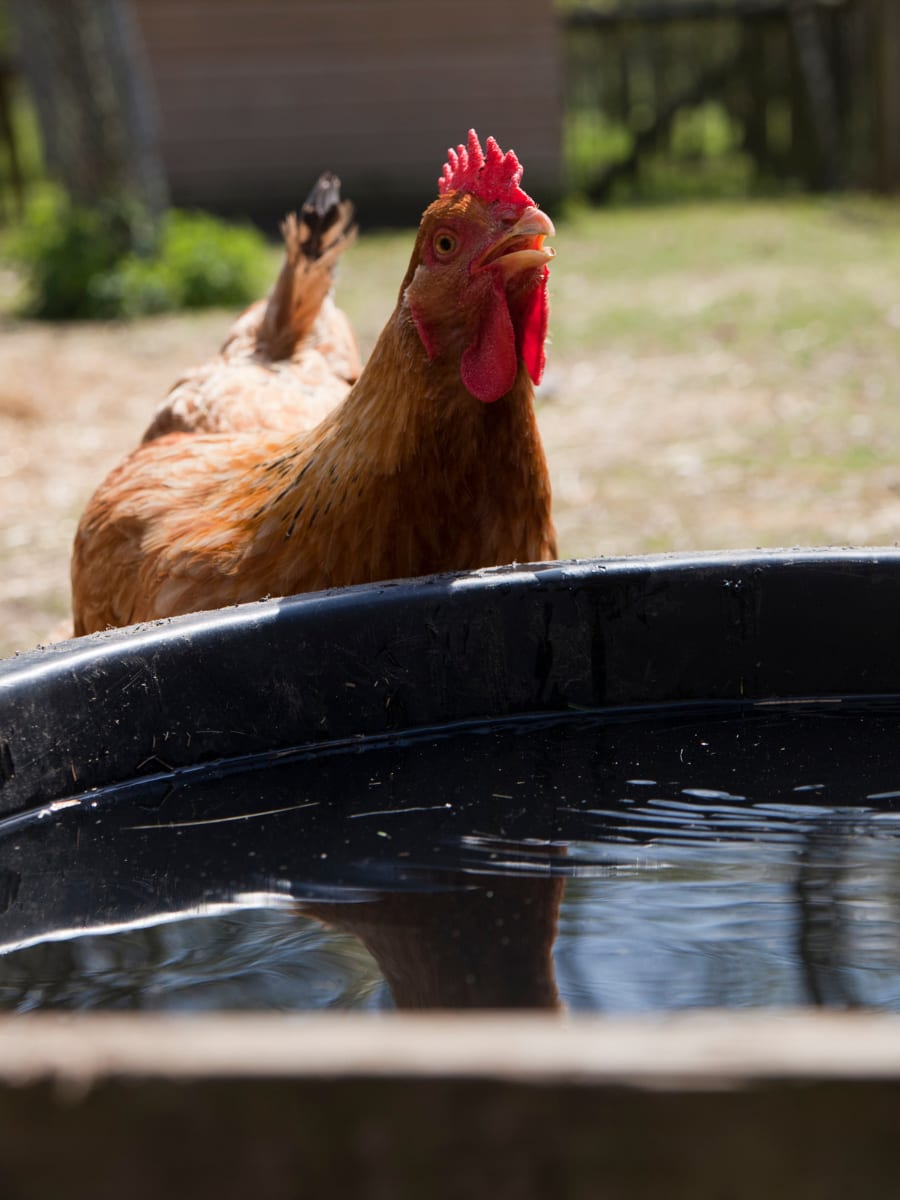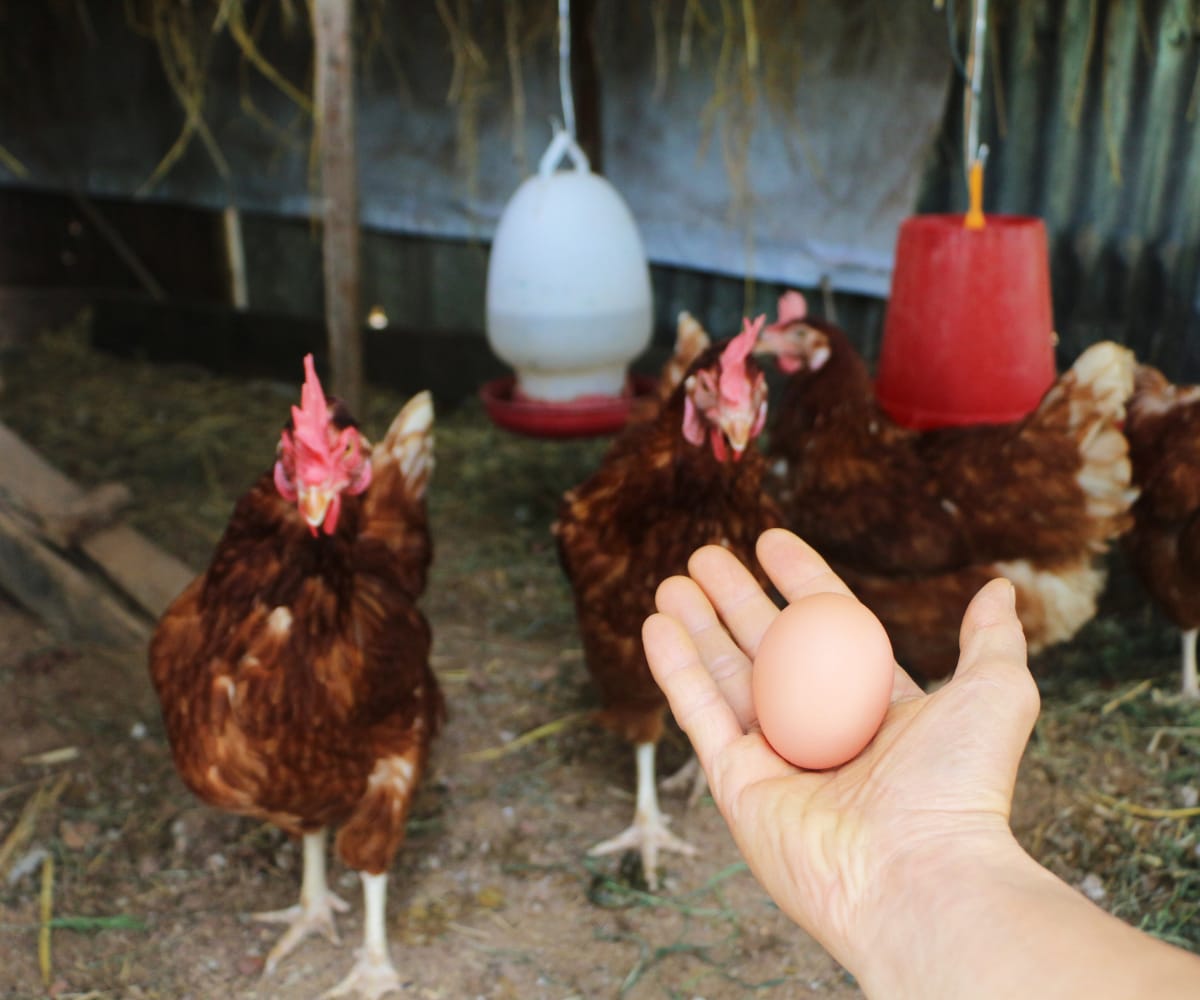Raising any type of livestock comes with its own risks and rewards. The rewards are pretty self-explanatory: companionship and usable end products, like eggs. The risks get a little more complex, but disease is the risk at the forefront of all of our minds.
Coccidiosis, or cocci, is a common disease in poultry, caused by protozoal organisms of the family Eimeriidae. From backyard chickens to wild birds, cocci occurs worldwide. The most characteristic signs of infection are diarrhea, weight loss and reduced production, but it can also be fatal. So where does it come from? What can we do about it?
How do birds get cocci?

Coccidia, the parasites that cause cocci, are universally present in areas where poultry are being raised. Fortunately, specific conditions must be met for a bird to actually develop a disease.
Disease Susceptibility
First, the bird has to be susceptible to disease, meaning it's already being impacted by another illness or immunocompromised in some way, such as old age, genetic anomalies or poor nutrition. This doesn't mean that healthy birds can't get coccidiosis—it just means that they are less susceptible when challenged.
Oocysts
The next two requirements go hand in hand: 1) the bird has to ingest a relatively high number of oocysts, and 2) the oocysts have to be sporulated.
Oocysts are microscopic protozoa eggs. Fresh oocysts shed in a chicken's droppings are inactive and will remain inactive for one to two days until they get enough moisture, oxygen and heat to sporulate. Sporulation is the process that allows the oocyst to activate, mature and become infective. After sporulation, oocysts can then survive in the soil, litter, feed and dust for long periods of time depending on environmental conditions, which offers plenty of time for animals, pests or people to move them around.
The Bottom Line
While cocci are always present in chicken coops, they only become a problem when certain criteria are met. Infection occurs when a susceptible bird ingests a large amount of sporulated oocysts.
Coccidiosis Symptoms

The life cycle of Eimeria parasites, which cause coccidiosis, begins in the bird. There are many different species of the genus Eimeria, and they all like to hang out in different areas of the digestive tract in different hosts. This is part of what makes them so tricky to beat.
For chickens, it is most common to see Eimeria tenella in the ceca or Eimeria necatrix in the small intestine, while coccidia may infect the entire intestinal tract in game birds, according to Dr. Richard W. Gerhold, Jr.'s article in the Merck Veterinary Manual.
When birds have a cocci infection of any type, the birds tend to show symptoms like diarrhea with mucus, weight loss, decreased egg production, decreased growth and decreased feed and water consumption.
More on Mucus
The presence of mucus in chicken feces is a very common symptom of cocci. This happens as the bird’s gut attempts to protect itself from the cocci organisms by encasing them in mucus or coating the intestinal lining to prevent damage.
Unfortunately, overproduction of mucus can prevent the absorption of nutrients, leading to even more complications like malnutrition, diarrhea and weight loss. One way to help your birds through a cocci infection is to reduce the amount of mucus in the intestine. Although it has not been formally tested, we have been told by many chicken enthusiasts that Mother Load Apple Cider Vinegar is great for this.
Secondary clostridial infections also commonly affect chickens and can lead to additional clinical signs, such as fever, dehydration, discolored feces and rapid mortalities.
How to Prevent Coccidiosis in Chickens

From boosting your birds' overall health to considering the use of anticoccidial feeds, there are several ways to help prevent cocci outbreaks in your flocks.
Overall Bird Health
First and foremost, ensure that your birds are healthy enough to manage an outbreak if it occurs. Remember, the most susceptible birds are the ones that are already weakened by something else. You can boost your birds' overall health by adding nutritional supplements, vitamins and probiotics to their drinking water.
Coop Cleanliness
It is also important to be mindful of coop cleanliness. Do not underestimate the power of litter management—both affected birds and recovered birds can shed inactive oocysts into their environment.
Once these oocysts are exposed to moisture, air and heat, they can sporulate and spread. Properly managed coop floors will not provide the moisture needed for these to progress to infective strains. Keep feces to a minimum by removing waste as often as necessary and refraining from overcrowding the coop. Ensuring your litter is dry can also prevent oocysts from sporulating.
Vaccinations
There are also options to vaccinate your birds against specific coccidial strains, which many hatcheries offer when ordering new chicks.
Anticoccidial Feeds
Anticoccidial feeds are a favorite preventative measure taken by many backyard bird enthusiasts. These feeds are used to reduce the number of protozoa present in a bird's digestive tract by killing them or preventing growth and proliferation.
If you use medicated feed, remember to rotate it with regular feed. Using anticoccidial feed all the time could prevent your birds from establishing healthy immunity and create organisms resistant to the anticoccidial feeds. What does this mean?
For birds to build a healthy immunity against cocci strains, exposure to some infectious organisms is necessary. But this won’t happen if birds are fed a constant diet of anticoccidial feed, leaving the birds defenseless in the absence of the feed.
To prevent this, it is important to 1) consider rotating active ingredients if anticoccidials are used continuously, or 2) allow your healthy birds to take breaks from constant exposure to anticoccidials.
Treating Coccidiosis
It is much more difficult to treat coccidiosis than to prevent it. If your coop experiences a cocci outbreak, it can be hard to control.
These are powerful little organisms that can have devastating effects on your entire flock. Once they are there, using anticoccidial drugs is just about the only way to treat chickens.
Vitamins A and K as well as antibiotics are helpful in improving the rate of recovery and preventing secondary infections. It is also important to ensure that there is plenty of fresh clean water available to avoid dehydration in infected birds.
Boost Your Roost

Coccidiosis is a common disease wherever poultry live. The protozoa that cause the disease are always present, but they don’t become a problem until birds have a weakened immune system, and the protozoa have an environment in which they can thrive.
Healthy birds are pretty good at fighting off cocci early in infection—but any bird in your flock that may be immunocompromised by age, preexisting diseases or poor nutrition can become infected pretty quickly.
If a bird does have cocci, the affected chicken may have symptoms like diarrhea and weight loss as well as decreased egg production, growth and feed and water consumption. While there are options for treating cocci, the best thing to do is prevent it through keeping your birds healthy, keeping your coop clean, and possibly through vaccination and anticoccidial feed. If your feathered friends get cocci, help them get through it with vitamins and plenty of clean water.
Contact Us
If you have any questions about how to prevent coccidiosis in your birds, feel free to contact us at success@southlandorganics.com or 800-608-3755. Keep up with us on social media @SouthlandOrganics.






